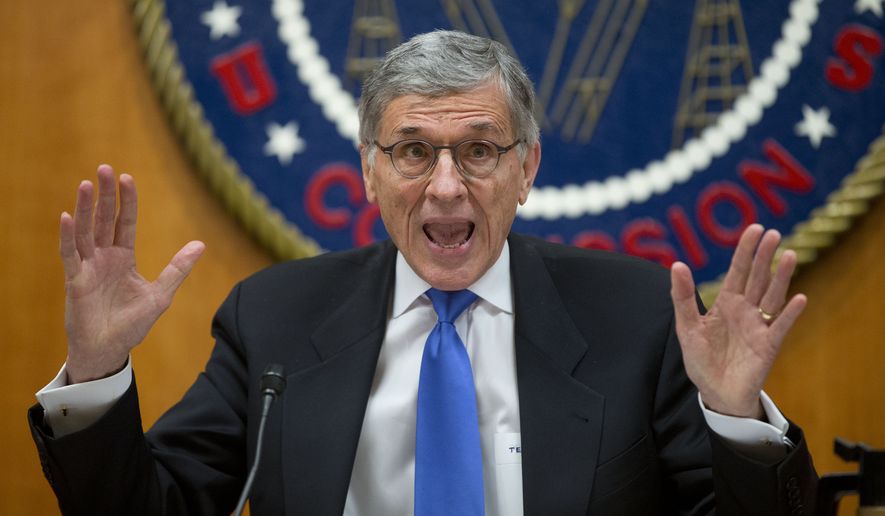OPINION:
In one of the most important decisions in its history, the Federal Communications Commission, a pernicious government agency set up more than 70 years ago to regulate radio interference, may undermine key aspects of the Internet.
But most media outlets provided coverage of last week’s controversial decision, a 3-2 vote along party lines, for just about one 24-hour news cycle.
Many outlets described the new policies as a victory for consumers over the Internet Service Providers, such as AT&T, Comcast and Verizon.
Although I won’t defend the ISPs, the characterization of the decision as a victory for consumers overlooks the likelihood of poorer connections, higher costs and lengthy legal battles for which the public will pay millions of dollars.
Under the guise of so-called “net neutrality,” which is defined as the ability for any user to equally access material on the Internet, the commission has given government the power to tamper with one of the most successful communications networks ever created.
The means of allowing greater government involvement comes under the reclassification of the Internet as a common carrier or a public utility. As a result, FCC Chairman Tom Wheeler has been trying to dampen fears about greater government involvement.
But the power of the FCC has expanded over the years, scooping up control of television, cellular telephones, satellite transmission and many other important aspects of the communications business.
Michael Powell, the former head of the FCC, challenged the new policies in a column at CNet.com. The commission “radically departed from a decades-old bipartisan national policy of not regulating the Internet and expansively broadened its regulatory power without direction from Congress,” he argued.
Here’s what the decision is likely to do or not do:
• The cost of Internet connections would not go down.
• Internet speeds would not become faster any time soon. In fact, they may get slower because providers may slow down or not add upgrades.
• The new policy would not create additional competition.
The Wall Street Journal’s L. Gordon Crovist argued that had these rules been in effect years ago they “could have strangled Alta Vista and Excite, the early leaders in search, and relegated Google to a Stanford student project. Newspapers could have lobbied against Craigslist for depriving them of classified advertising.”
Even though many of us like to complain about the cost and quality of broadband access, we would pay an estimated $2,400 a month based on the charges in 1995 of $10 for the first five hours of time and $3 an hour after that. These cost savings occurred because cable companies took over the backbone of the Internet from telephone companies.
Former FCC commissioner Robert McDowell wrote in USA Today that he thinks the policies will hurt the Internet. “History teaches us that utility-style regulation raises costs to consumers, reduces investment and innovation and creates uncertainty.”
Moreover, the FCC commissioners voted while keeping much of the actual policies a secret. More than 300 pages of materials won’t be published for the next four months or so.
As a result of what amounts to a secretive power grab, it may be time to take a serious look at the power of the FCC and dial back its influence on the Internet and other key communications systems.
A personal note: Al Webb, a longtime UPI reporter and friend, died recently. Unlike Brian Williams, Mr. Webb was a true hero. He was awarded a Bronze Star for trying to save a wounded soldier in Vietnam. He will be missed by those of us who knew him and those who read his reports.
• Christopher Harper is a longtime reporter who teaches journalism at Temple University. He can be contacted at charper@washingtontimes.com and followed on Twitter @charper51.




Please read our comment policy before commenting.